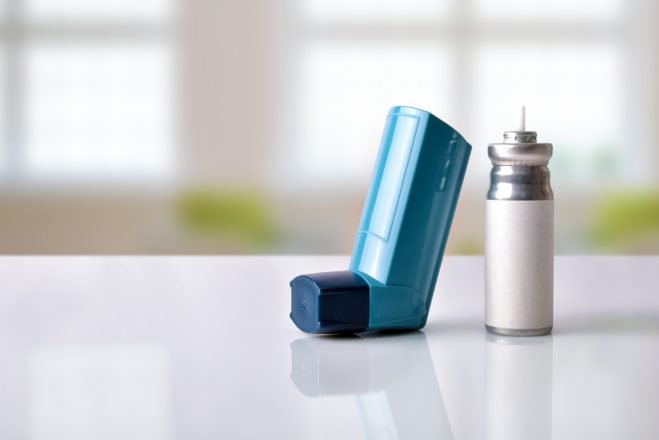Advertisment
Pediatric PPI use appears to raise risk of asthma

Article written by Bruce Sylvester
Pediatric proton pump inhibitor (PPI) treatment appears to be related to an increased risk of asthma in children, researchers reported on Feb. 8. 2021 in JAMA Pediatrics.
“In this nationwide cohort study, we observed a significant 57% increased risk of asthma among children who initiated PPI use compared with those who did not initiate PPI use,” the authors said. “An increased risk was observed across all age groups and was greatest in infants and toddlers younger than 2 years,” they added.
The investigators evaluated retrospectively data gathered in Sweden from January 1, 2007, to December 31, 2016. They matched children and adolescents 17 years or younger into 80,870 pairs of those who had received PPI treatment and those who had not.
The primary endpoint was risk of appearance of asthma over a median follow-up of 2.1 to 3.0 years.
Among the 80,870 pairs of subjects (63.0% girls; mean age, 12.9 years), those who started PPI use during follow-up had a 57% higher incidence rate of asthma (21.8 events per 1000 person-years) compared with non-initiators (14.0 events per 1000 person-years).
Asthma risk increased significantly with PPI treatment in all age groups . It was highest for subjects who were infants and toddlers when initiating PPI treatment, 83% higher in the group younger than 6 months and 91% higher in the group 6 months to younger than 2 years.
“The finding was consistent across individual PPIs, and the risk increase was similar regardless of the cumulative duration of PPI treatment. An increased risk was observed for asthma occurring early after treatment initiation, as well as later. The findings were robust in sensitivity analyses, including an as-treated analysis and high-dimensional propensity score matching,” the authors said.
“Proton pump inhibitors should be prescribed to children only when clearly indicated, weighing the potential benefit against potential harm,” they added.





